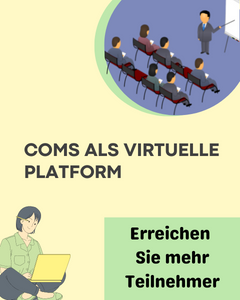Konferenzen > Mathematik > Simulation
Wählen Sie ein Land aus
Belgien (1) - Deutschland (1) - Griechenland (1) - Großbritannien (2) - Kanada (6) - Lettland (1) - Ungarn (1)
ALLE LÄNDER (13)
1
Model-Informed Vaccine Development and Quantitative Systems Pharmacology/Toxicology
15. Mär 2026 - 20. Mär 2026 • Banff, Alberta, Kanada
Eintrags-ID:
1668556
2
WE-Heraeus-Seminar — Future of Integrated Assessment Models: Pathways Towards Carbon Neutrality for Climate, Environment, Health and Socio‐economic Co‐benefits
20. Apr 2026 - 24. Apr 2026 • Bad Honnef, Deutschland
3
NAFEMS EE26 — NAFEMS Eastern Europe Conference 2026
28. Apr 2026 - 29. Apr 2026 • Budapest, Ungarn
Eintrags-ID:
1673902
4
A Roadmap towards Developing Mechanobiochemical Models for Single and Collective Cell Migration through Complex Non-Isotropic Environments
10. Mai 2026 - 15. Mai 2026 • Banff, Alberta, Kanada
Eintrags-ID:
1668668
5
Modelling of Plant Microtubules
17. Mai 2026 - 22. Mai 2026 • Banff, Alberta, Kanada
Eintrags-ID:
1668612
6
MMA2026 — The 29th International Conference Mathematical Modelling and Analysis
02. Jun 2026 - 05. Jun 2026 • Jūrmala, Lettland
Eintrags-ID:
1697539
Webseite:
7
NASCA26 — Numerical Analysis and Scientific Computation with Applications
09. Jun 2026 - 12. Jun 2026 • Kalamata, Griechenland
Eintrags-ID:
1680324
Webseite:
8
Variational Problems in the Physical and Data Sciences: Analysis, Modeling, and Simulation
05. Jul 2026 - 10. Jul 2026 • Banff, Alberta, Kanada
Eintrags-ID:
1668691
9
AUTOMATA & ACRI 2026 — AUTOMATA & ACRI 2026
06. Jul 2026 - 10. Jul 2026 • Gent, Belgien
Eintrags-ID:
1692396
Webseite:
10
Workshop — Collective movement and pattern formation: Biology, modelling and analysis
27. Jul 2026 - 30. Jul 2026 • ICMS, Bayes Centre, Edinburgh , Großbritannien
Eintrags-ID:
1670050
11
MHBW02 — Modelling Behaviour for Global Challenges: Epidemics and Energy Systems
10. Aug 2026 - 14. Aug 2026 • Cambridge, Großbritannien
Eintrags-ID:
1685026
Webseite:
12
Nonlocal Aggregation Models in the Life Sciences
23. Aug 2026 - 28. Aug 2026 • Banff, Alberta, Kanada
Eintrags-ID:
1668761
13
The Fluid Mechanics of Volcanic Hazards
25. Okt 2026 - 30. Okt 2026 • Banff, Alberta, Kanada
Eintrags-ID:
1668872
Conference-Service.com stellt der Öffentlichkeit ein Kalendarium wichtiger Konferenzen, Symposien und sonstiger Tagungen im wissenschaftlich-technischen Bereich zur Verfügung. Obwohl das Verzeichnis mit großer Sorgfalt zusammengestellt und ständig aktualisiert wird, weisen wir auf die Möglichkeit von Fehlern ausdrücklich hin. Bitte vergewissern Sie sich immer beim Veranstalter, bevor Sie über die Teilnahme oder Nichtteilnahme an einer Konferenz entscheiden.
Stand vom 18. Februar 2026



